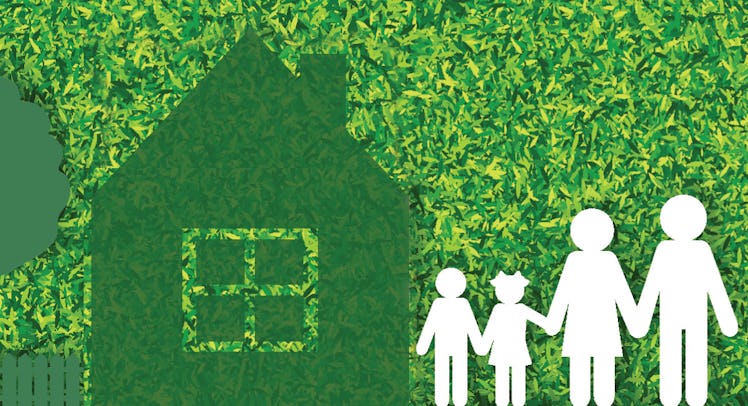The American Dream is Now About Family, Not Money
The American dream isn't dead, it's just changed. And wealth isn't the key anymore.

The idea of the “American dream” has shifted. The phrase, invented as shorthand for meritocratic access to money and cultural capital, now means many different things to many different people. Owning a home, which became central to discussions of the dream during the 1980s, and having a good job are no longer the core components to the public’s understanding of what it means to chase or live the American dream. Fewer than 11 percent of the respondents to a new Pew Research Center survey on the American dream thought wealth was an essential component of that vision. Less than half thought owning a home was. Instead, most believed that personal freedom and a good family life were much more important.
Partisanship didn’t seem to be a factor in these findings, and education level didn’t have a dramatic impact. Instead, the response reveals widespread sentiments held across the country.
It also means that a large number of adults feel that the American dream is more attainable by focusing away from material wealth as a measure of success. Overall, 36 percent say their family has achieved the American dream, while another 46 percent say they’re “on their way” to achieving it. And an arguably small amount, just 17 percent, say that the American dream is wholly out of reach.
It’s notable that respondents made it explicitly clear that the traditional indicators of the American dream aren’t relevant anymore. Around half say that owning a home and having a successful career aren’t essential. That could be related to the fact that homeownership has become harder and harder for a large share of American people. But more so, it shows that values of freedom and family are simply much more important to people than money.